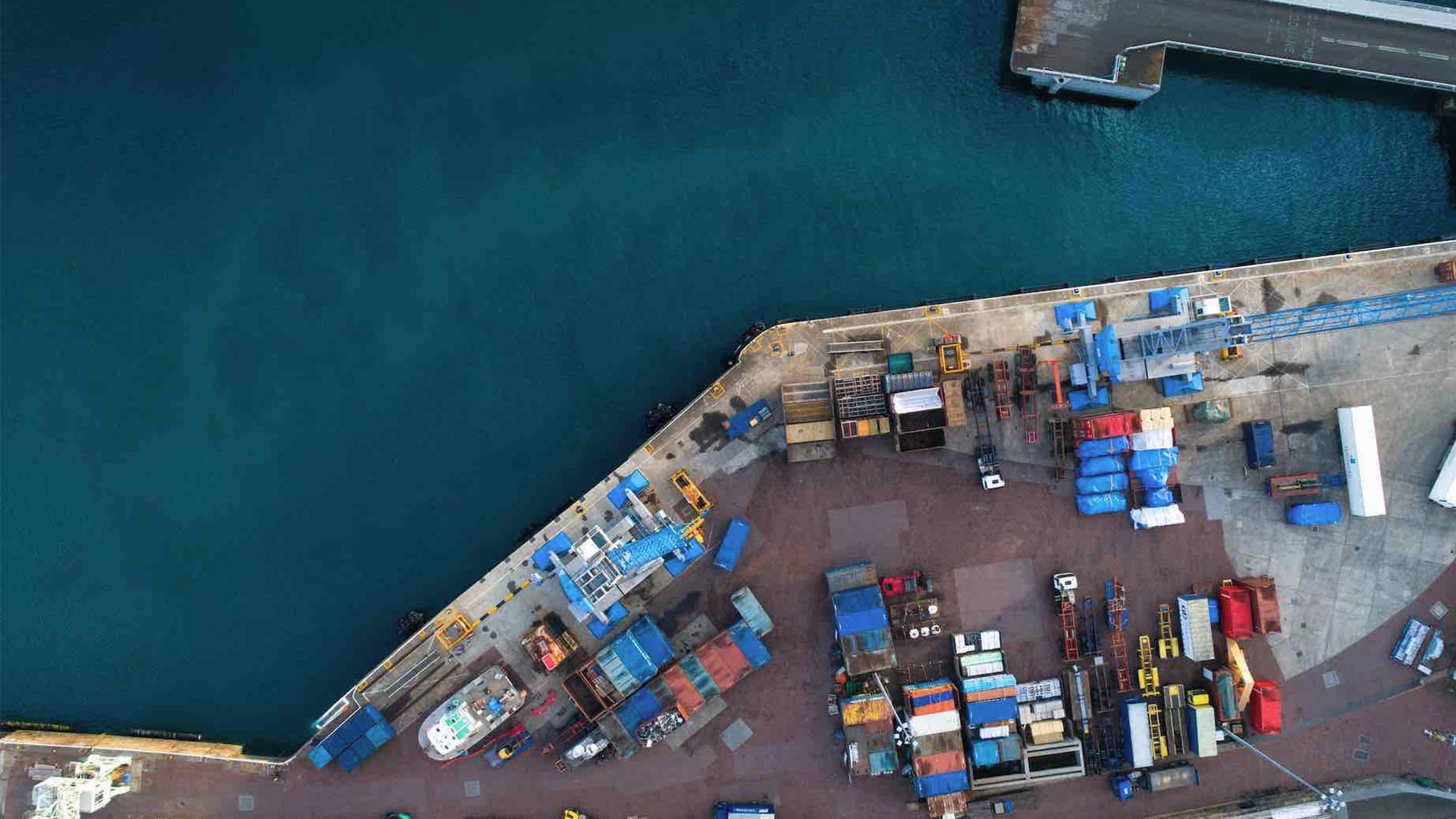The intensity with which the corona pandemic has affected companies worldwide is immense. But even as production and international supply chains have already been restarted, the long-term effects are not yet foreseeable. We spoke to Stephan Schiller, Managing Director Hermes Europe and CEO Hermes International, a division of Hermes Germany, about initial reactions and long-term lessons learned from the pandemic.
Mr. Schiller, when did you realize that the virus will have a huge impact on global supply chains?
During a visit to China at the end of January, I got an idea of what we might be facing. The early lockdown in China was a clear indication that international logistics would be severely affected. With the production shutdown in China, the first thing that happened was that parcels were missing. Then air freight collapsed, followed by sea freight with a slight delay. The parcel business from China recovered quickly. In the context of Supply Chain Solutions, however, we are not yet back on track.
How did you react to that? And how were you able to support your customers in this challenging situation?
Even prior to the crisis, we were beginning look into the subject of Supply Chain Risk Management (SCRM) and are now even more actively developing a format that makes it transparent to our customers what risks the respective supply chains are exposed to.
In the Corona situation, we have tried to determine with our customers what the priority status looks like. Which goods absolutely have to be transported, for example, in order to ensure their availability. To this day, we are in close contact with the existing capacities and try to support customers when, for example, production markets need to be changed. After all, important production countries such as India or Bangladesh are still not yet fully available.
The actual effects are of course not yet foreseeable, but numerous experts are already talking about a return to extensive warehousing and the localization of procurement. Has Just-in-Time become obsolete and is the age of globalization over? Which scenarios do you consider realistic?
I don’t think so, at least not for the mass of commodity groups. A global recession, and with it economic pressure, will ‘force’ most international companies to continue using low-cost production locations. Certainly, dependencies from just-in-time or just-in-sequence concepts will be somewhat cushioned for highly complex production, such as solving dependencies on a few markets or suppliers – but costs will remain a driving issue. Nevertheless, I hope that scenarios will emerge in which the sustainability aspect, in terms of willingness to purchase and climate and environmental protection, will play a role.
You already mentioned Supply Chain Risk Management. What will be the future relevance of SCRM?
Resilience will be the defining term in corporate strategies and of course logistics will play an important role here. Today we already see ourselves as a solution provider and not just as a ‘task executor’.
We want to contribute to our customers’ success and this increasingly includes consulting services for the entire supply chain. The Corona crisis is a maximum disruption, yet it brutally reveals dependencies and weaknesses. We would like to assist companies in avoiding risks as far as possible. Therefore we are in the process of developing a dedicated format for this. We are starting with a number of existing customers, because this maximum transparency in corporate strategies and cost structures requires a high degree of trust. Dimensions of this service include the assessment of business risks, weather and geographical conditions in the context of our customers’ logistics structures.
The 12. Hermes-Barometer on Sustainability in Supply Chain Management has stated that sustainable management is becoming increasingly relevant, yet that a comprehensive change is still pending. Is the current situation rather an opportunity or an obstacle for companies that want to make their own supply chain more sustainable?
In my opinion, it’s an opportunity. Even prior to the Corona crisis we knew that we had to take better care of our planet. What is not based on voluntary action will have to be defined by official rules and legislations in the near future. When it comes to that, companies should be prepared. The shift to new fuels in shipping or the ongoing discussion about alternatives to diesel-powered vehicles are just the beginning. Companies that are now realigning their supply chains should definitely bear this in mind.
The pandemic has thrown our global economy into a turmoil. At Hermes International, have you been able to identify opportunities for your own organization? What does the New Normal mean for logistics and global supply chains?
We are not yet fully acquainted with the New Normal. However, logistics has proven to be a crucial element in maintaining economic and private lives. I hope that this will somewhat change the standing of our industry. On the other hand, logistics is a derived demand and we are doing well when our customers are doing well. All in all, I would like to see this as an opportunity – else we would not be logistics specialists.
Mr. Schiller, thank you very much for this interview.

